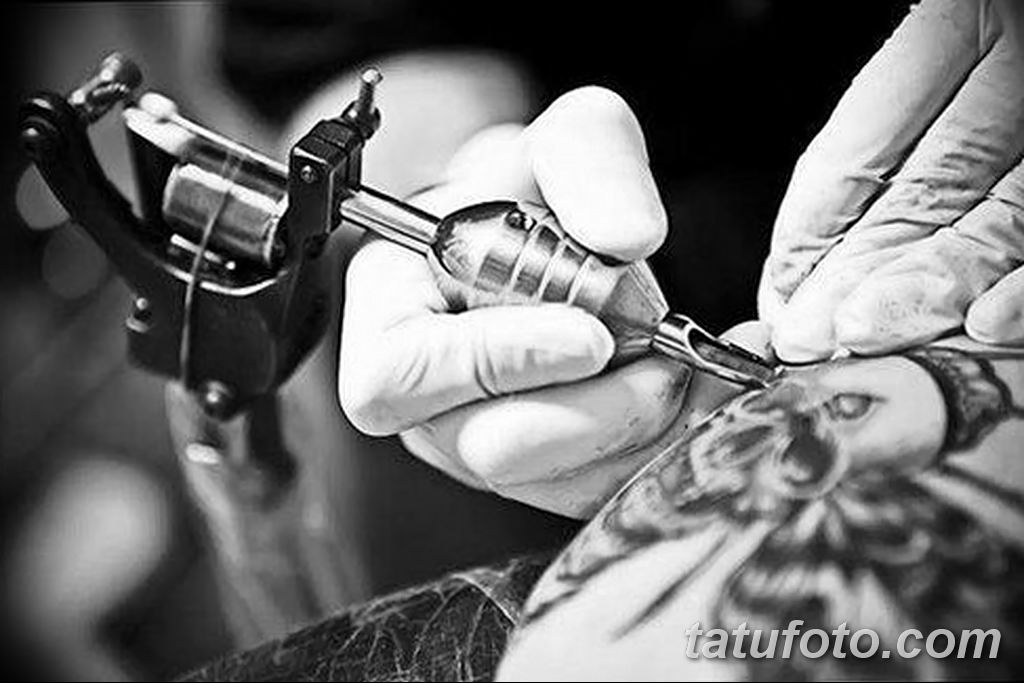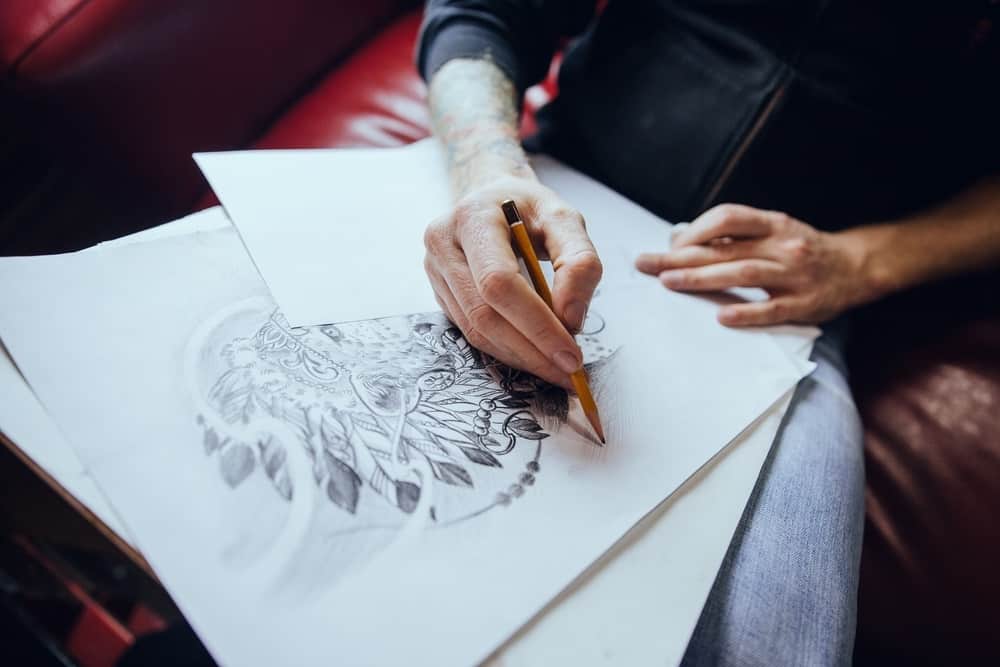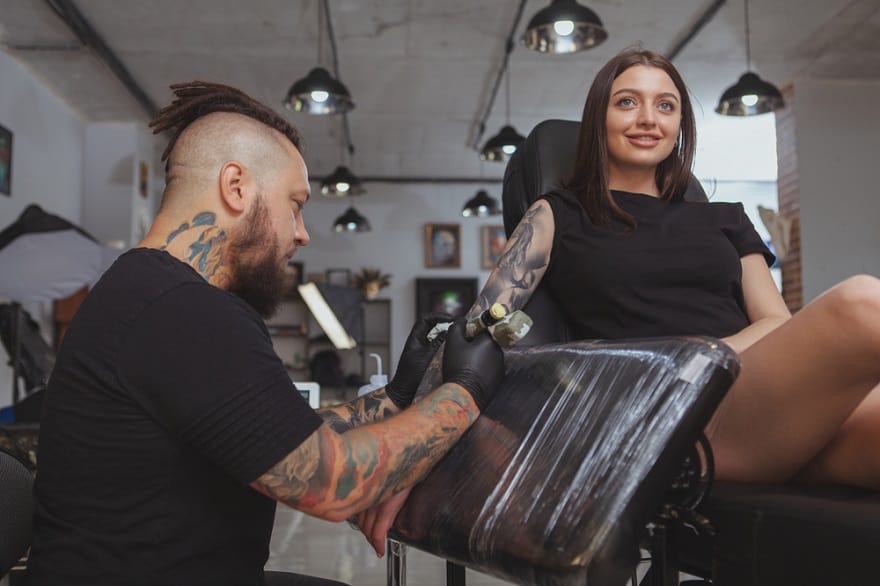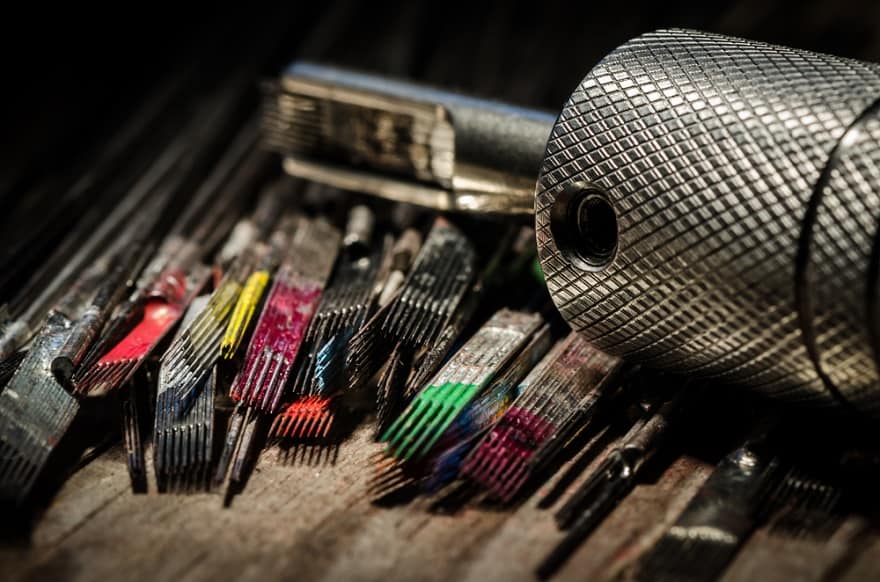
10 things you should know before becoming a tattoo artist
Contents:
Being a tattoo artist seems easy; you have a needle and some ink and you are ready to go. However, the execution of a tattoo requires much more work than it might seem at first glance. When we say “more work,” we mean hard work that can take years and may even be poorly paid or not paid at all.
However, don't let this discourage you; If you are passionate about art, drawing, and design, then becoming a tattoo artist might be a great choice for you. However, learning new skills and gaining enough experience or working alongside other artists will be an important part of the process.
Now that we have the bare essentials, let's see what else you might need to become a professional tattoo artist!
10 things you should know before becoming a tattoo artist
Becoming a tattoo artist - basic requirements
1. Learn to draw

Let's start with the assumption that you are passionate about drawing, but you still need some practice and experience in creating a visually appealing drawing. Well, even if you are good at drawing, you still have to learn and practice new drawing techniques.
So, the first step to becoming a tattoo artist requires learning and drawing practice. Here is what this process might involve;
- Practicing drawing skills - This step will require several sketchbooks and pens or pencils. You will use your sketchbook to draw shapes, objects, patterns, and create drawings of your own. You should practice until you feel comfortable enough to use any design you can think of.
- Acquaintance with the techniques and methods of drawing. While you are practicing drawing, it is important to master the various drawing techniques and methods. This will help you better understand how the tattoo design is made and help you understand how the design will apply and look on the skin. Some of the drawing techniques include perfecting lines, working on details, learning to design simplicity, and learning when to stop when a drawing is bad.
- Acquaintance with the work of professional tattoo artists. – to learn and improve your drawing skills, you need to learn from the best. Famous tattoo artists such as Keith Bang Bang McCurdy, Chris Nunes, Gerhard Wiesbeck, Yohji Harada, Mirko Sata and many more can serve as great examples of the different tattoo styles and how each style translates into tattoo design and finally into tattooing. . .
- Exploring artistic movements and tattoo styles – learning different art styles can help you create your own drawing style. You may find a movement or tattoo style that speaks volumes about you, your abilities, and your creative mind. In this way, you may find that you are good at creating abstract art or more realistic drawings. In any case, this step is very important in the whole process of becoming a tattoo artist.
2. Getting an education

Proper education is essential in any career, and it is essential when it comes to professional tattooing. To become a versatile professional tattoo artist, you need to access traditional artistic knowledge and skills.
This may seem like a waste of time, but it's far from it; this can be one of the most important aspects of the process if you are planning to build a serious career. So, here's how you can get an education;
- art classes – don't worry, you don't need to spend a fortune on drawing lessons. Try taking inexpensive art classes at your local college or educational centers. There you can get a great understanding of the basics of art, drawing, painting, art movements, etc.
- Getting an art degree - this is a more serious approach that requires complete dedication. It's also not suitable for most people financially, but it's an option. Earning an art degree or a degree in graphic design, design, digital art, illustration can help you develop strong artistic skills that will serve as the foundation and springboard for your tattoo career.
- Studying Graphic Design Whether you decide to study at a community college or an art university, it is important to get an education in graphic design. By studying graphic design, you will learn about form, texture, hue, color, meaning, size, line, etc. Experience with graphic design will help you better understand what it means to transfer design from paper to human skin. .
3. Collect your art in a portfolio

By gathering your work and art in one place, you can land a potential mentor or internship at a tattoo parlor.
It will be easier for people to review your work, understand your style and see if you fit what they are looking for in a potential tattoo artist. This is how you are going to create a portfolio;
- Make it look professional Your portfolio needs to look professional if you want to grab the attention of potential mentors. So, try using folders with sheet protection, or make the pages matte. This will make it easier to view your portfolio and make your work stand out. Not to mention, it will look professional, sleek, and show that you are serious about your potential tattoo career.
- Choose the right job - of course, you will include your best work in your portfolio. But what does your best work include? Well, it should be the art that best reflects your style, drawing skills, and ability to handle detail, color, and shadows. Include artwork that shows you can draw objects, patterns, shapes, symbols, shapes, etc. There should be artwork in both black and white and color. So, decide to use your strongest parts that show your potential to create great tattoos.
- Include original work - many people tend to make a mistake, including their versions of someone else's work. We do not recommend that you do this. Try to include your original work in your portfolio. Only then will potential mentors see your true talent and ability to create unique designs.
4. Working with a professional tattoo artist (mentoring)

The best way to learn about tattooing is to work with a real tattoo artist. This will give you an idea of the real tattoo environment and help you learn and practice new techniques.
Here's how you can get a mentor;
- Visit several tattoo parlors Of course, physically going to tattoo parlors in the midst of a pandemic may not be the smartest decision. However, if you live in an environment where you can go outside for so long that you maintain social distancing, try doing face-to-face research. If this is not possible, try contacting some tattoo parlors by email or phone and ask about their training. Of course, in such a case, you will have to submit your portfolio online form.
- Explore potential mentors - while you are contacting tattoo parlors, it would be wise to do a little research and study the background of your potential mentors and professional tattoo artists. This will help you introduce yourself to the people in the store and adjust your portfolio accordingly.
- Ask about important things (e.g. tuition fees and the nature of apprenticeship agreements) - when contacting potential mentors and tattoo parlors, be sure to get information on tuition fees as well as clarification of legal documents regarding the apprenticeship agreement. For starters, you should know that some tattoo parlors offer free mentoring, but getting one is incredibly difficult. Others, however, offer mentorships ranging from $5,000 to $10,000.
5. Learn and practice everything related to tattooing

This step is pretty simple. At this point in the process, you need to learn about the art of tattooing and receive training. Here is what you will be doing during this time;
- Equipment purchase – remember that you will have to invest in your equipment, which will increase the cost of training. Equipment usually includes tattoo guns, art supplies, sterile equipment, etc.
- Use of tattoo equipment - along with all other work, as an apprentice, you will learn how to use a real tattoo machine. You will have to learn how the needle works with the skin and how the needle should work differently depending on the type of skin or even the client.
- Practicing in tattoo design - at this stage you will know how to draw a drawing on paper, but you will need to practice creating tattoos that will end up on the human body. You will learn the placement of tattoos on the body, how they look on each part of the body, and how you can go through the actual tattoo process, with all the details, coloring, etc.
- Maintain good hygiene before, duringand after tattoo – Adopting proper hygiene rules will be critical during your apprenticeship. You will need to learn how to maintain certain hygiene standards in order to meet the requirements of your client and your tattoo parlor. Any hygiene issues can be potentially dangerous and lead to health problems for your client. Such issues will affect the store's reputation and potentially ruin it. The apprentice usually checks the mentor's hygiene rules before accepting mentorship.
- Work for free One of the most common practices during an apprenticeship is the free work of an apprentice. In return, the student gets all the practice and experience needed to become a good tattoo artist. Because of this, we advise you to come up with another source of income and start saving even before you reach the student stage.
6. Obtaining a license
Once you've completed your apprenticeship, it's time to get your certificate and license proving that you are a true tattoo artist and are allowed to work or open your own tattoo parlor. Here's what you'll need for this step;
- Classes and trainings on disease control, disease prevention and other healthcare concepts You will likely be required to complete a bloodborne pathogen certification program as well as programs related to disease control and prevention. As a tattoo artist, you should be aware of the health problems associated with tattoos (HIV, hepatitis C, etc.), how they can spread, and how you, as a tattoo artist, can prevent them. After you complete these programs, you will pass knowledge tests and receive certificates.
- Applying for a license - Before applying for a license, be sure to check your government requirements. Some of the requirements may include a certain number of hours of training, mentoring by professional tattoo artists, and a certain number of tattoos you have done. Once you have checked the prerequisites and found that you have met them all, you can apply for a license at your local branch. You may have to pay a fee, but be sure to check this information as well, as it varies from state to state.
7. The beginning of a career as a tattoo artist

That's all! You have a license and are in the last step of this long and exhausting process. But here you are, and here's what you need to do to finally start your career as a professional tattoo artist;
- Buying your equipment - You may have a tattoo gun and some basic equipment. But to become a professional tattoo artist, you will need to invest in equipment, including sterile needles, tubes, grippers, feathering needles, coloring needles, sprayers, cleaning soap, ink bottles, etc. All these supplies will be needed in Your tattoo process.
- Applying for a job - as a licensed tattoo artist, you can get a real paid job at any tattoo parlor you want. So, start looking for free places in tattoo parlors and see which one offers the best conditions for work. Be sure to update your resume and portfolio to include your new and improved work, and even photos of the tattoos you got while studying.
- Become your own boss - this may be a more difficult path for you, but opening a tattoo parlor is a worthy reward for a career. However, it will cost you extra money! You will have to rent a space, invest in new and suitable furniture, additional equipment and you may need to hire some people to work with you. We recommend that you first try to work in a tattoo parlor, save up some money, and then start your own business, just to gain some experience and additional knowledge in the industry.
Final thoughts
I hope we have provided you with all the necessary starting information. For more information, be sure to check with local tattoo parlors or try contacting tattoo artists in your area.
Be sure to review the licensing requirements for the state you live in and find out how you can obtain the required certifications and license.
We also recommend that you consider saving up some money because you will need to pay tuition fees and invest in your own equipment. Becoming a tattoo artist is not easy and expensive.
However, if you are really passionate about this profession, then it is worth it. In any case, we wish you the best of luck in your future endeavors!
Leave a Reply